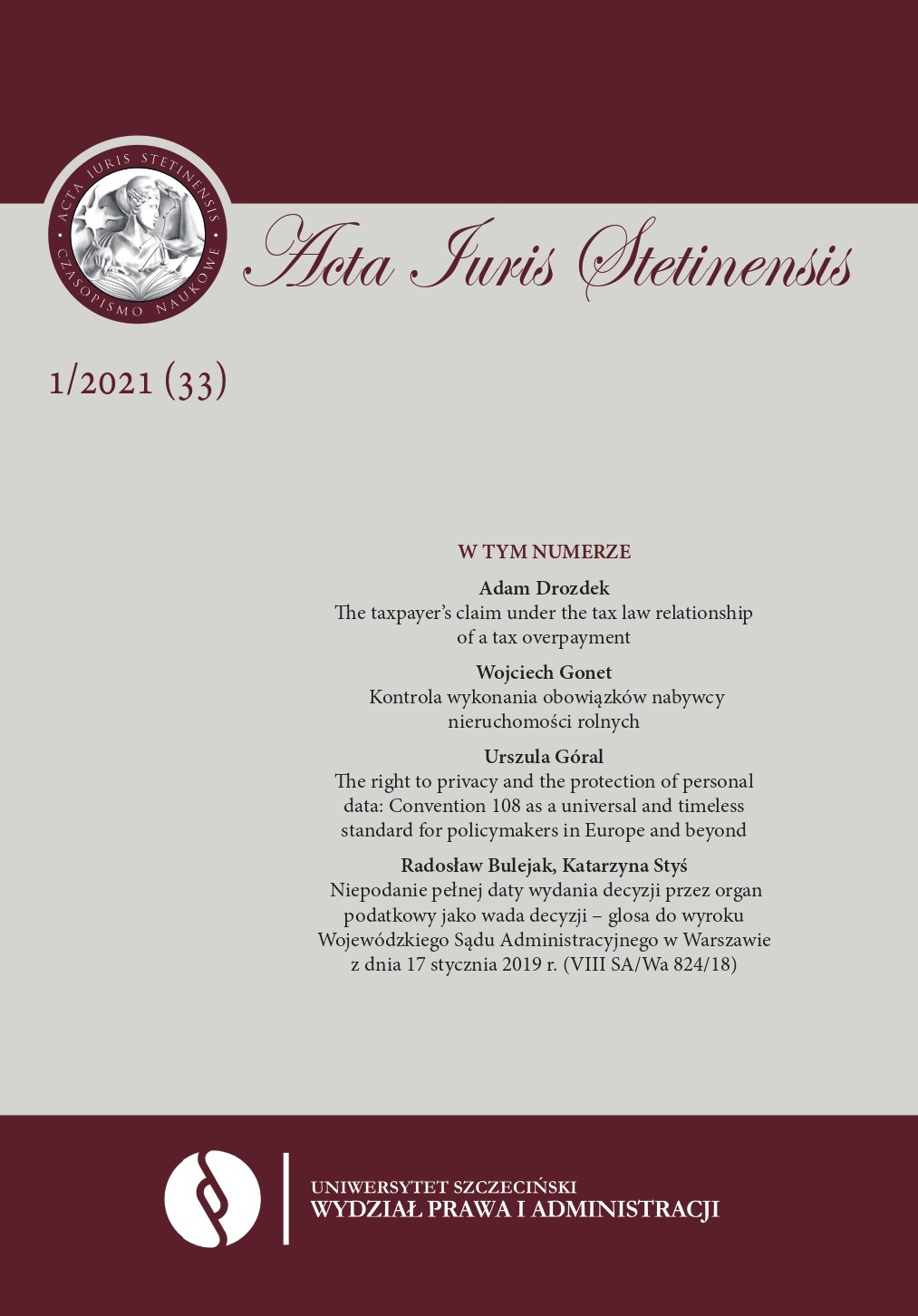Digitalisation of ADR proceedings in consumer cases, with particular emphasis on the institutions of the Financial Ombudsman and Coordinator for Negotiations
Digitalisation of ADR proceedings in consumer cases, with particular emphasis on the institutions of the Financial Ombudsman and Coordinator for Negotiations
Author(s): Łukasz Mroczyński-SzmajSubject(s): Law, Constitution, Jurisprudence, Civil Law, Human Rights and Humanitarian Law, Law on Economics, Commercial Law
Published by: Wydawnictwo Naukowe Uniwersytetu Szczecińskiego
Keywords: digitalization; consumer; Financial Ombudsman; Coordinator for negotiations; online dispute resolution (ODR)
Summary/Abstract: The purpose of this paper is to present changes in legislation during 2013-2017 in the area of consensual dispute resolution with the participation of consumers—in particular with regard to the emergence of electronic procedures. Various features of the analysis of law in force as well as the analysis of law as has it evolved in history are used in the implementation of this objective. The author addresses model European solutions provided under Regulation (EU) No 524/2013 of the European Parliament and of the Council of 21 May 2013 on online dispute resolution for consumer disputes and amending Regulation (EC) No 2006/2004 and Directive 2009/22/EC (Regulation on consumer ODR) and presents two important institutions of consensual dispute resolution with the participation of consumers within the framework of the European ODR platform. The author concludes that the introduction of digital procedures cuts down expenses, the duration of disputes and provides a realistic option of achieving its final result; it is also stressed that this is of particular significance in the resolution of cross-border disputes within 90 days – where we encounter obstacles in the form of different national legal orders or language barriers. The author furthermore indicates that an important advantage of the ODR platform consists in the possibility of going through intuitive steps with the assistance of complaint creators, recording drafts, and checking consumer rights, which is very convenient for consumers, who are not particularly proficient in the operation of mobile devices. However, the author also notes that the various institutions involved in the out-of-court dispute resolution may differ in their legal status or possibilities of resolving a particular dispute (for example, the Financial Ombudsman and the Coordinator for negotiations cannot deliver binding arbitration decisions). By the same token, in selecting an ODR entity, it must be borne in mind that not all of them can resolve a dispute between parties in a binding manner.
Journal: Acta Iuris Stetinensis
- Issue Year: 2021
- Issue No: 33 (1)
- Page Range: 115-132
- Page Count: 18
- Language: English

